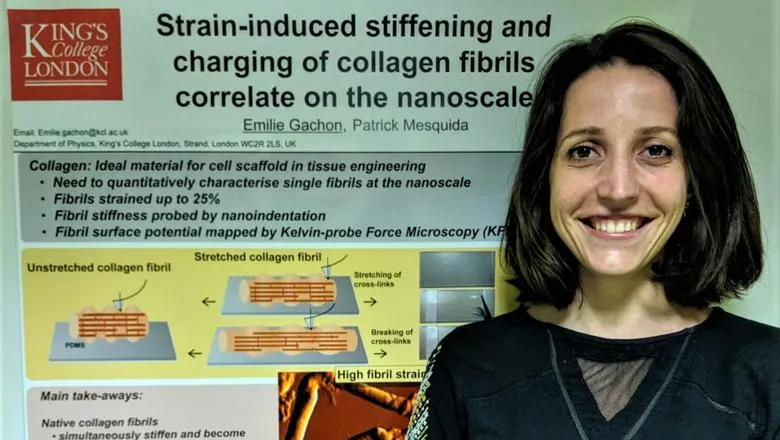
Dr Patrick Mesquida
Senior Lecturer
Research interests
- Physics
Biography
Patrick Mesquida gained his first degree in Physics (Dipl.-Phys.) at Saarland University, Saarbruecken, Germany in 1999. In 2002, he was awarded a PhD in Nanotechnology at the Swiss Federal Institute of Technology (ETH Zürich) and moved to University College London, where he carried out postdoctoral research with the Interdisciplinary Research Collaboration (IRC) for Nanotechnology at the Bone and Mineral Centre and the London Centre for Nanotechnology. He joined King’s College London as Lecturer in Materials Science in 2005 before moving to the Physics Department in 2010. In 2012 and from 2016 to 2018 he was a Visiting Professor at the Vienna University of Technology (TU Wien, Austria) and also became a Senior Lecturer in the Physics Department at King’s.
Research interests:
- Biophysics and Nanotechnology
- Surfaces and Interfaces
- Scanning-probe methods development with focus on nanomechanical and nanoelectrical properties
- Soft-Lithography
Research

Biological Physics & Soft Matter
The Biological Physics and Soft Matter group aims to use bespoke technology and analytical methods borrowed from the Physical Sciences to address important fundamental questions in Biology.
News
Physics alumnus wins King's Outstanding Thesis Prize for ground-breaking collagen research
Dr Emilie Gachon received the award for her research which further understanding of conditions such as heart attacks and diabetes.

Nanostrand newsletter available for download
Nanostrand is the newsletter for the Photonics & Nanotechnology Group and the Biological Physics and Soft Matter Group in the Department of Physics.

Collagen takes up the strain
Researchers in the Department of Physics at King’s College London have discovered that collagen fibrils can withstand a significantly higher amount of strain...

Biophysics student wins poster prize in Belgium
Emilie Gachon, a PhD student in the Department of Physics, has won one of the three Nanoscale Poster Prize at the International Scanning Probe Microscopy...

Research

Biological Physics & Soft Matter
The Biological Physics and Soft Matter group aims to use bespoke technology and analytical methods borrowed from the Physical Sciences to address important fundamental questions in Biology.
News
Physics alumnus wins King's Outstanding Thesis Prize for ground-breaking collagen research
Dr Emilie Gachon received the award for her research which further understanding of conditions such as heart attacks and diabetes.

Nanostrand newsletter available for download
Nanostrand is the newsletter for the Photonics & Nanotechnology Group and the Biological Physics and Soft Matter Group in the Department of Physics.

Collagen takes up the strain
Researchers in the Department of Physics at King’s College London have discovered that collagen fibrils can withstand a significantly higher amount of strain...

Biophysics student wins poster prize in Belgium
Emilie Gachon, a PhD student in the Department of Physics, has won one of the three Nanoscale Poster Prize at the International Scanning Probe Microscopy...

